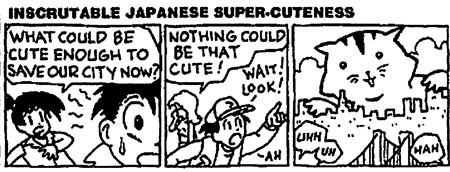 In a recent interview, Steven King is quoted as saying that a Vertigo editor asked him not to use thought balloons in his work on American Vampire. An article in Comics Comics Mag brought this to our attention, and sparked discussion. Why do some editors now discourage, or even ban, thought balloons — even when the writer is Steven King? Are they perceived as being cheesy, and if so, why? Tim, Kumar, and Mulele discuss. Also: The Walking Dead, Billy Bat, and Gin-Tama!
In a recent interview, Steven King is quoted as saying that a Vertigo editor asked him not to use thought balloons in his work on American Vampire. An article in Comics Comics Mag brought this to our attention, and sparked discussion. Why do some editors now discourage, or even ban, thought balloons — even when the writer is Steven King? Are they perceived as being cheesy, and if so, why? Tim, Kumar, and Mulele discuss. Also: The Walking Dead, Billy Bat, and Gin-Tama!
Podcast: Play in new window | Download


 Also in this episode, Tim, Mulele, and Kumar discuss the upcoming
Also in this episode, Tim, Mulele, and Kumar discuss the upcoming  Tim and Mulele set out to review
Tim and Mulele set out to review  Comics are being used increasingly to get messages across visually, even those aimed at the business world.
Comics are being used increasingly to get messages across visually, even those aimed at the business world.